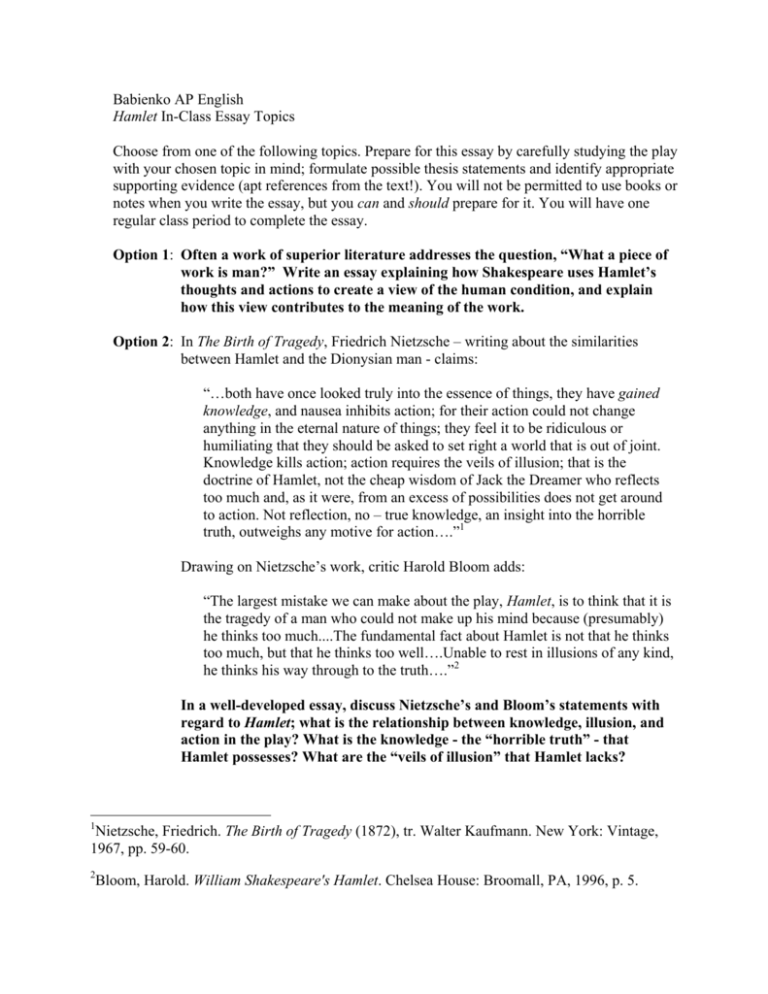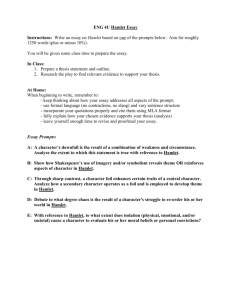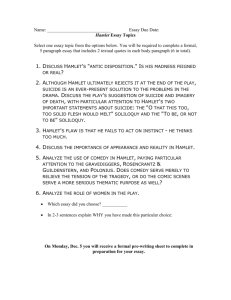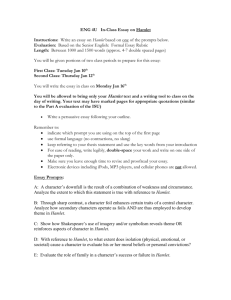Babienko AP English Hamlet In-Class Essay Topics Choose from
advertisement

Babienko AP English Hamlet In-Class Essay Topics Choose from one of the following topics. Prepare for this essay by carefully studying the play with your chosen topic in mind; formulate possible thesis statements and identify appropriate supporting evidence (apt references from the text!). You will not be permitted to use books or notes when you write the essay, but you can and should prepare for it. You will have one regular class period to complete the essay. Option 1: Often a work of superior literature addresses the question, “What a piece of work is man?” Write an essay explaining how Shakespeare uses Hamlet’s thoughts and actions to create a view of the human condition, and explain how this view contributes to the meaning of the work. Option 2: In The Birth of Tragedy, Friedrich Nietzsche – writing about the similarities between Hamlet and the Dionysian man - claims: “…both have once looked truly into the essence of things, they have gained knowledge, and nausea inhibits action; for their action could not change anything in the eternal nature of things; they feel it to be ridiculous or humiliating that they should be asked to set right a world that is out of joint. Knowledge kills action; action requires the veils of illusion; that is the doctrine of Hamlet, not the cheap wisdom of Jack the Dreamer who reflects too much and, as it were, from an excess of possibilities does not get around to action. Not reflection, no – true knowledge, an insight into the horrible truth, outweighs any motive for action….”1 Drawing on Nietzsche’s work, critic Harold Bloom adds: “The largest mistake we can make about the play, Hamlet, is to think that it is the tragedy of a man who could not make up his mind because (presumably) he thinks too much....The fundamental fact about Hamlet is not that he thinks too much, but that he thinks too well….Unable to rest in illusions of any kind, he thinks his way through to the truth….”2 In a well-developed essay, discuss Nietzsche’s and Bloom’s statements with regard to Hamlet; what is the relationship between knowledge, illusion, and action in the play? What is the knowledge - the “horrible truth” - that Hamlet possesses? What are the “veils of illusion” that Hamlet lacks? 1 Nietzsche, Friedrich. The Birth of Tragedy (1872), tr. Walter Kaufmann. New York: Vintage, 1967, pp. 59-60. 2 Bloom, Harold. William Shakespeare's Hamlet. Chelsea House: Broomall, PA, 1996, p. 5.








